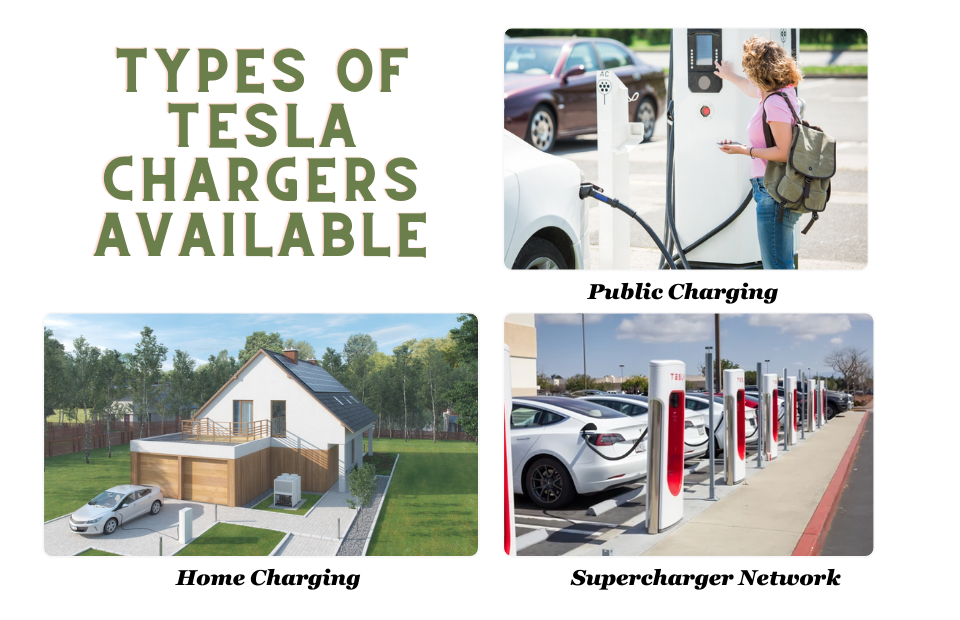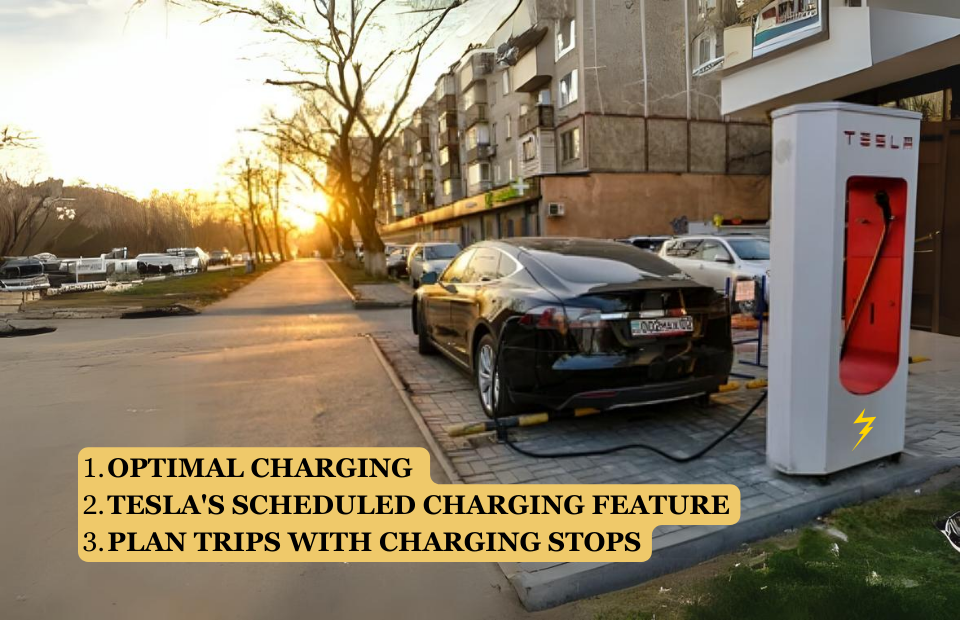Tesla is the first company that is known for making super luxury Electric vehicles (EVs). Tesla vehicles are known for their electric power engines. These cars run on electricity instead of gasoline, so they need to be charged up to work. Charging a Tesla isn’t like filling up a gas car at a station. Instead, Tesla owners plug their cars into charging stations to fill up the battery. This is important for Tesla owners to know because it affects how they use their cars every day and when they go on long trips.
The Tesla car owner must know the charging time of their vehicle because it is very important for various reasons. Firstly, it helps Tesla owners plan their daily commutes, ensuring they have enough charge for their trips. Secondly, it allows them to anticipate charging needs during longer journeys, preventing range anxiety. Moreover, understanding charging times can guide Tesla owners in selecting the most suitable charging options, such as home chargers, public charging stations, or superchargers.
Factors Influencing Charging Time
Several factors influence the charging time of a Tesla, including battery size and capacity, the type of charger used, and the battery’s charging state. Understanding these factors helps Tesla owners optimize their charging experience and make informed decisions about their electric vehicle usage. By the way, Mazda vehicles are also very popular for their advantageous factors.
Battery Size and Capacity
The size and capacity of a Tesla’s battery play a significant role in charging time. Generally, larger batteries with higher capacities take longer to charge than smaller ones. This is because more energy needs to be transferred into the battery, requiring more time to complete the process.
Type of Charger Used
The type of charger used to charge a Tesla also affects charging time. There are three primary types of chargers: Level 1, Level 2, and DC Fast Chargers. Level 1 chargers, which use a standard 120-volt outlet, are the slowest, while Level 2 chargers, which require a 240-volt outlet, are faster. DC Fast Chargers are the quickest, capable of charging a Tesla to 80% in as little as 45 minutes.
Charging State of the Battery
The charging state of a Tesla’s battery also impacts the time it takes to charge. When a battery is nearly depleted, it charges more quickly than when it has a moderate charge level. However, once the battery reaches around 80% charge, the charging speed slows down to protect the battery’s lifespan.
Types of Tesla Chargers Available
Let’s have a look at some of the popular types of Tesla chargers.

Home Charging Options
Tesla owners can choose from various home charging options to suit their needs and preferences. The most common home charger is the Tesla Wall Connector, which delivers up to 48 amps and charges a Tesla at a Level 2 rate. Tesla owners can also use a standard J1772 charger, although it charges at a slower Level 1 rate.
Public Charging Stations
Public charging stations offer Tesla owners the convenience of charging away from home. These stations can be found at shopping centres, parking lots, and other public locations. Public charging stations typically offer Level 2 or DC Fast Charging options, allowing Tesla owners to quickly replenish their batteries while running errands or taking breaks during long trips.
Supercharger Network
Tesla’s proprietary Supercharger network is designed for faster charging during long-distance travel. These charging stations are strategically placed along major highways and routes, enabling Tesla owners to recharge their vehicles efficiently and continue their journeys with minimal downtime. Superchargers use DC Fast Charging technology, providing Tesla owners with the quickest charging option available.
Moreover, besides optimizing the charger of Tesla we can make it even more convenient by using the latest car gadgets in our Tesla vehicle.
Charging Time Comparison Among Different Tesla Models
| Tesla Model | Charging Type | Charging Time |
| Model 3 | Supercharger (Level 3, 250-kW) | 15-20 minutes for 80% charge |
| Supercharger (Level 3, 150-kW) | Up to 40 minutes | |
| Destination Charging location | 8-12 hours for a full charge | |
| Standard outlet or Level 1 plug | 3-4 days (if battery is depleted) | |
| Tesla Wall Connector (Level 2) | Up to 9 hours | |
| NEMA 14-50 | Up to 9 hours | |
| Model S | NEMA 14-50 | 17-18 hours |
| Tesla Wall Connector (Level 2) | Up to 12 hours | |
| Tesla Supercharger | Over 1 hour | |
| Model X | NEMA 14-50 | Up to 19 hours |
| Tesla Wall Connector (Level 2) | Up to 12 hours | |
| Tesla Supercharger | Over 1 hour |
Tips for Faster Charging

Let’s discuss some amazing tips for faster charging, portable chargers and pro tips for your car’s charging.
Optimal Charging Practices
To optimize charging time, Tesla owners should aim to charge their vehicles when energy costs are lowest, such as during off-peak hours. Additionally, it is advisable to charge the battery to 80% instead of waiting for a full charge, as this can extend the battery’s lifespan and save time.
Utilizing Tesla’s Scheduled Charging Feature
Tesla vehicles offer a Scheduled Charging feature, which allows owners to set specific charging times based on their daily routines and energy costs. By utilizing this feature, Tesla owners can ensure their vehicles are charged efficiently without wasting energy or time.
Planning Long Trips with Charging Stops
When planning long trips, Tesla owners should factor in charging stops to avoid range anxiety. Using Tesla’s Trip Planner, owners can identify charging stations along their routes and plan their stops accordingly. This helps ensure a smooth and stress-free journey, as well as minimizing the overall time spent on charging.
Conclusion
The time it takes to charge a Tesla depends on various factors, including battery size, charger type, and battery charging state. Understanding these factors helps Tesla owners make informed decisions about charging options and optimize their charging experience. As electric vehicles continue to gain popularity, it is crucial for charging infrastructure to expand to meet the growing demand. This includes increasing the availability of public charging stations, expanding Tesla’s Supercharger network, and promoting the use of home charging options.
Frequently Asked Questions on Tesla Charging
How long does it take to fully charge a Tesla at home?
Tesla home charging time varies but typically takes 8-12 hours for a full charge.
Are Tesla Superchargers faster than home charging options?
Yes, Tesla Superchargers are faster than home charging options.
Can I overcharge my Tesla by leaving it plugged in?
No, you cannot overcharge a Tesla by leaving it plugged in, as it automatically stops charging when fully charged.





